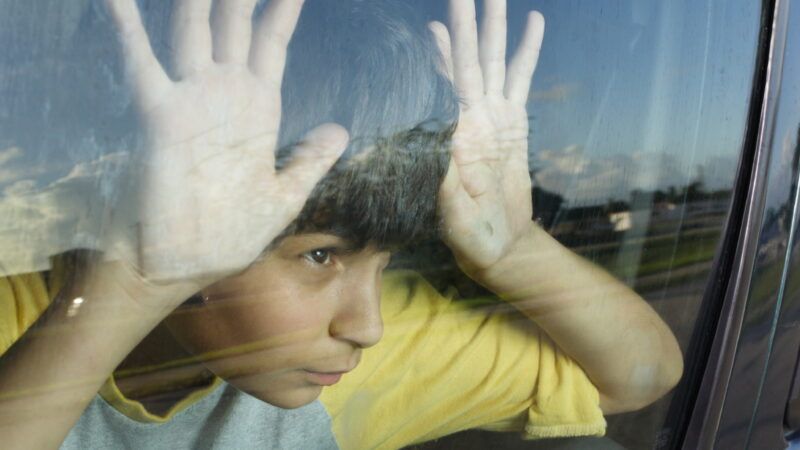A Boy Was Taken Into State Custody. 2 Weeks Later, He Was Dead.
"They couldn't keep him alive for two weeks," says the boy's father. "That's absolutely insane."

In December, Richard Blodgett's 9-year-old son, Jakob, was taken into Arizona Department of Child Safety (DCS) custody. Two weeks later, Jakob had died of complications stemming from diabetes.
The incident, which is now under investigation by the Maricopa County Sheriff's Office, highlights the dangers children face when they are taken into state care.
"They couldn't keep him alive for two weeks, two weeks," Blodgett told the Associated Press. "That's absolutely insane."
Jakob was first taken into custody after Blodgett was arrested on drug charges. Blodgett, who already had a drug charge pending against him at the time of arrest, told the A.P. that after operating a backhoe for several hours that day, he pulled over to take a nap at a gas station. A police report confirms this, though officers believe Blodgett was sleeping as a result of drug use. According to the A.P., authorities ultimately found over 4,000 fentanyl pills in Blodgett's possession. He was then arrested and booked on one count of drug possession.
Blodgett claims he wasn't using the drugs to get high, but rather to manage pain following a weight loss surgery. "I wasn't abusing them. I was using them to be able to work and provide for my son," Blodgett told the A.P. "Unfortunately, they are illegal. I can't get around that. But they were stronger than my meds, and they were working."
Jakob, who was staying in the motel room the two shared, was quickly seized by the Arizona Department of Child Safety. According to the boy's grandmother, someone working for DCS told her that Jakob's insulin pump was taken because the boy was allegedly playing with it. From there, it seemed that the boy's condition worsened. He developed ketoacidosis, a life-threatening complication of Type 1 diabetes that occurs when there isn't enough insulin in the body. Jakob was eventually placed on a ventilator, and just two days after arriving at the hospital, the boy was declared brain-dead.
Blodgett thinks that his son's death—officially listed as natural with complications from diabetes—was due to negligence from the Arizona Department of Child Safety. Both Blodgett and his mother, Cheryl Doenges, insisted to the A.P. that the boy could not manage his medical condition on his own.
While rare, the deaths of children in Arizona state custody are far more common than the state average. According to the A.P., the death rate of children in state custody was 97 per 100,000 children in the last year that data was available—nearly double the state average for the same period. One 2020 study of national data found that from 2003 to 2016, children in foster care were 42 percent more likely to die than children in the general population.
Thousands of children are taken by child protective services each year even though there is no evidence of actual abuse. While some children are certainly better off in foster care than with truly abusive parents, overzealous seizures of children can have horrible consequences. In some cases, like Jakob's, children are placed into state custody because their parent has been jailed for a nonviolent offense.
"That was my pride and joy," Blodgett told the A.P. "I'm lost. I'm completely lost. My family is completely lost."


Show Comments (46)